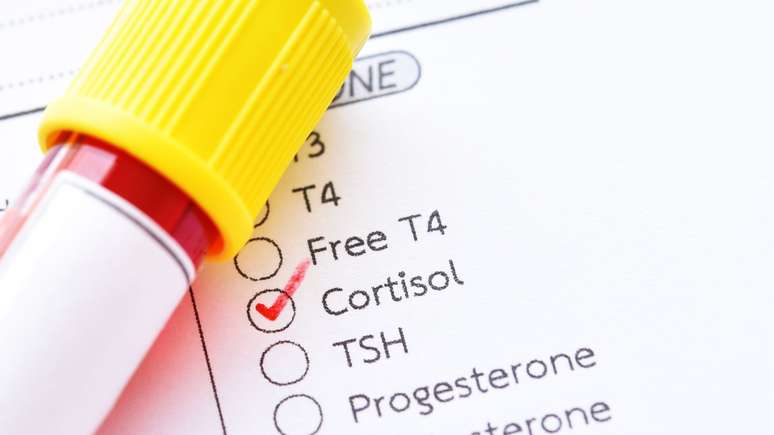Widely known as the “stress hormone,” cortisol has a number of vital roles in the human body; learn more
Known widely as “stress hormone”, Cortisol has a number of vital roles in the human body. However, a distorted view has circulated on social media, which often mistakenly associates the disease with problems such as weight gain and excessive tiredness. But what do we really know about this hormone and what facts do we need to clarify to understand its true function?
OR cortisol, A steroid produced by the adrenal glands, it is essential for numerous bodily functions, such as regulating metabolism, stress response, and even immune function. Additionally, it works to regulate blood pressure and blood glucose levels. Despite its crucial role, the increase in discussions on social media has increased the level of misinformation about the effects of cortisol.
How does cortisol work and why is it important?
Cortisol is released in response to stressful situations that the body perceives as threatening. In the past, this mechanism was a crucial part of survival strategies, allowing for a rapid reaction in risky situations. Today, this same mechanism is activated in everyday stressful situations, not necessarily related to imminent physical risks.
Is cortisol imbalance the big bad of modern health?
The answer to this question is complex. Although chronic stress can lead to increased cortisol production, and this can trigger a variety of reactions such as increased appetite and weight gain, it is not correct to say that most symptoms of tiredness and anxiety are caused solely by from this. Health conditions vary greatly, and cortisol is only one piece of the puzzle.
Demystification with the help of experts
Second Alexander Hohlprofessr of Endocrinology at the UFSC, diseases related to cortisol dysfunction, such as Cushing’s disease, are relatively rare. This condition usually results from long-term use of corticosteroids or from abnormal production of cortisol, often related to a tumor. Symptoms of this disorder are significant and include weight gain, red stretch marks, and high blood pressure.
On the other hand, Paul Mirandapresident of the Brazilian Society of Endocrinology and Metabology, in an interview with g1, warns against excessive simplifications and generalizations related to the hormone. Directly correlating high levels of cortisol with stress, without a more in-depth analysis, can lead to misdiagnosis. The recommendation is to always seek specialist medical evaluation in case of persistent symptoms.
Therefore, in addition to being essential for several vital functions, cortisol and its regulation require careful understanding. While navigating a sea of often contradictory information on social media, science and proper medical monitoring are essential for accurate diagnosis and effective treatment.
- Stay informed through reliable sources.
- Consult specialized doctors for personalized evaluations.
- Adopt healthy habits that help regulate hormones and reduce stress.
Finally, it is essential to distinguish valid information from mere speculation, especially when the topic involves something as complex as the hormonal functioning of the human body.
Source: Terra
Ben Stock is a lifestyle journalist and author at Gossipify. He writes about topics such as health, wellness, travel, food and home decor. He provides practical advice and inspiration to improve well-being, keeps readers up to date with latest lifestyle news and trends, known for his engaging writing style, in-depth analysis and unique perspectives.







